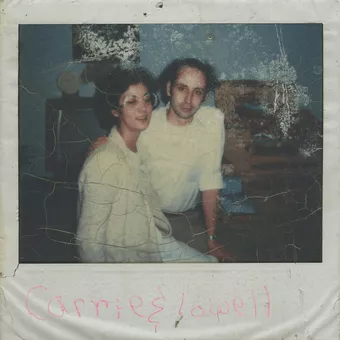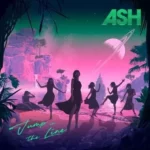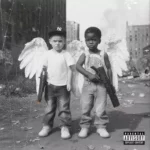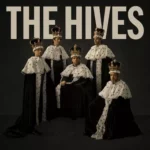Sufjan Stevens – Mystery of Love (Demo) Lyrics
Oh, to see without my eyes
The first time that you kissed me
Boundless by the time I cried
I built your walls around me
White noise, what an awful sound
Fumbling by Rogue River
Feel my feet above the ground
Hand of God deliver me[Chorus]
Oh, ooh-wo-ah is me
The first time that you touched me
Oh, will wonders ever cease?
Blessed be the mystery of love[Verse 2]
Lord, I no longer believe
Drowned in living waters
Cursеd by the love that I recеive
From my brother’s daughter
Like Hephaestion who died
Alexander’s lover
Now my riverbed has dried
Shall I find no other?
Oh, ooh-wo-ah is me
I’m running like a plover
Now I’m prone to misery
The birthmark on your shoulder reminds me
[Verse 3]
How much sorrow can I take?
Black bird on my shoulder
And what difference does it make
When this love is over?
Shall I sleep within your bed?
River of unhappiness
Hold your hands upon my head
‘Til I breathe my last breath
[Chorus]
Oh, ooh-wo-ah is me
The last time that you touched me
Oh, will wonders ever cease?
Blessed be the mystery of love
Sufjan Stevens – Mystery of Love (Demo)
Song Details
- Title: Mystery of Love (Demo)
- Artist: Sufjan Stevens
- Genre: Indie Folk, Baroque Pop
- Release Year: 2017 (as part of the Call Me by Your Name soundtrack)
- Language: English
- Themes: Love, Loss, Spirituality, Fate, Sorrow
- Mood: Poignant, Reflective, Soulful, Bittersweet
In-Depth Lyric Analysis
Verse 1: The Ineffable Nature of Love
- “Oh, to see without my eyes The first time that you kissed me”
This opening line introduces the feeling of love as something inexplicable, as if the narrator’s perception of reality is altered by the intensity of the moment. The first kiss represents a pivotal emotional experience that transcends rational understanding, implying that love is not only seen but also felt in a deeper, more mysterious way. - “Boundless by the time I cried I built your walls around me”
The narrator’s emotions are limitless and overwhelming, creating a sense of entrapment as they form an emotional “fortress” around themselves. The phrase “walls around me” suggests both protection and restriction, as love both shields and imprisons. - “White noise, what an awful sound Fumbling by Rogue River”
The imagery of “white noise” conjures a sense of confusion or mental overload, while “fumbling by Rogue River” places the narrator in a moment of disorientation or chaos, perhaps trying to navigate the river of emotions brought on by love. “Rogue River” may symbolize a force that’s unstoppable or wild, like the rush of feelings. - “Feel my feet above the ground Hand of God deliver me”
The sensation of being disconnected from reality is expressed through the image of the narrator’s feet floating above the ground. This could symbolize spiritual transcendence or the overwhelming effect of love. The plea for the “Hand of God” suggests the narrator’s desperation for guidance or salvation amidst the turmoil of their emotions.
Chorus: The Paradox of Love
- “Oh, ooh-wo-ah is me The first time that you touched me”
This repetition of the emotional exclamation “Oh, ooh-wo-ah is me” conveys a sense of deep vulnerability and sensory overload, as though the narrator is completely overtaken by the memory of the first touch. This moment feels almost divine, as if it holds a sacred power. - “Oh, will wonders ever cease? Blessed be the mystery of love”
The narrator contemplates the idea that love’s mysteries might never be fully understood. The line “will wonders ever cease?” suggests amazement at the boundless and complex nature of love, and “blessed be the mystery of love” implies a sense of acceptance of love’s enigmatic, often incomprehensible qualities.
Verse 2: Loss and Disillusionment
- “Lord, I no longer believe Drowned in living waters”
A shift occurs here as the narrator expresses a loss of faith—perhaps in love, life, or religion. “Drowned in living waters” suggests overwhelming sorrow or emotional suffocation, indicating that the narrator feels overwhelmed by their circumstances, possibly referencing the difficulty of letting go. - “Cursed by the love that I receive From my brother’s daughter”
This line introduces a complicated family dynamic and might reference a taboo love or an impossible relationship. It could symbolize a love that is both nurturing and destructive, akin to an emotional or spiritual burden. The mention of “brother’s daughter” can be a metaphor for an improper or forbidden love. - “Like Hephaestion who died Alexander’s lover”
This allusion to the Greek myth of Hephaestion, Alexander the Great’s beloved companion, adds a historical and tragic layer to the song. The reference evokes the idea of unfulfilled love and loss that is deeply tied to history and fate. The love between Alexander and Hephaestion, though powerful, ended tragically with Hephaestion’s death, symbolizing the impermanence of love. - “Now my riverbed has dried Shall I find no other?”
The “riverbed” drying represents a lack of emotional flow, suggesting the narrator’s loss of vitality or passion. They wonder if they will ever be able to love again, signifying a feeling of emotional emptiness after the loss.
Chorus: Desperation and Longing
- “Oh, ooh-wo-ah is me I’m running like a plover”
This repetition of the earlier line emphasizes the narrator’s ongoing emotional struggle. The comparison to a “plover” (a migratory bird) suggests that the narrator feels like they are constantly moving, but never finding rest, like a bird caught in a perpetual search for solace. - “Now I’m prone to misery The birthmark on your shoulder reminds me”
The narrator’s vulnerability to misery is highlighted, with a birthmark on the lover’s shoulder serving as a painful reminder of the love they once had. This marks a shift from the joy of the first touch to the sadness and longing that now lingers.
Verse 3: Sorrow and Surrender
- “How much sorrow can I take? Black bird on my shoulder”
This line conveys the narrator’s deep emotional suffering, asking how much they can endure. The black bird is a symbol of death, misfortune, or the burden of grief, much like the iconic image of a crow or raven often representing sorrow. - “And what difference does it make When this love is over?”
The narrator questions the meaning of their suffering once the love is gone, indicating that love, even though once a powerful force, may ultimately leave nothing of value behind once it fades. - “Shall I sleep within your bed? River of unhappiness”
This could represent the narrator’s contemplation of whether to continue in a relationship that is filled with unhappiness. It’s as though the narrator is wondering if they should accept emotional discomfort in the name of love, or if it’s better to leave altogether. - “Hold your hands upon my head ‘Til I breathe my last breath”
The imagery of holding hands until death suggests complete surrender to the situation, as if the narrator is willing to accept the pain until their last breath, symbolizing the intensity and inevitability of the end.
Chorus: Acceptance and Closure
- “Oh, ooh-wo-ah is me The last time that you touched me”
In the final chorus, the repetition of “Oh, ooh-wo-ah is me” takes on a sense of finality. This represents the last moment of love or affection from the lover, marking the end of an emotional chapter. - “Oh, will wonders ever cease? Blessed be the mystery of love”
The closing reflection returns to the mystery of love, highlighting that, despite the pain, there is still a sense of reverence and awe for the mysterious nature of love.
Meaning & Themes
1. The Paradox of Love
The song explores the contradictory nature of love—it is both healing and hurtful, uplifting and devastating. The narrator moves through intense joy and deep sorrow, signifying how love can be a complex and enigmatic force.
2. The Impact of Loss
Love is shown as a force that transformative but fleeting, and the loss of love is depicted as a deep, almost spiritual sorrow. The narrator reflects on the permanent scars left by love’s end and their own inability to move past it.
3. Spiritual and Mythological References
The song uses religious and mythological allusions (like Hephaestion and the river) to deepen the emotional weight, suggesting that love is not just a human experience but also transcendent and cosmic. This connection highlights the eternal nature of love, even when it causes suffering.
4. Acceptance of the Mystery of Love
Despite all the pain, the narrator comes to an acceptance of love’s mystery, recognizing that love, though often painful and inscrutable, is something to be blessed and revered for its complexity.
FAQs
1. What is the significance of the river imagery in the song?
The river is a symbol of emotional flow—it represents both the nourishing aspects of love and its potential to run dry, as in the case of the narrator’s “riverbed” drying up. It signifies the ebb and flow of emotions, and how love can be both a life-giving force and a source of emptiness when it fades.
2. Why does the narrator reference Hephaestion and Alexander?
The reference to Hephaestion, Alexander’s lover, serves as an allusion to tragic love and unfulfilled passion, as Hephaestion’s death marked a significant emotional loss for Alexander. This mythological comparison emphasizes the impermanence and sorrow that often accompany love.
3. What is the meaning of the line “Blessed be the mystery of love”?
This phrase suggests that, despite the pain, the narrator accepts and reveres love’s mysteries. It reflects the idea that love is not something easily understood or controlled, but its mysterious nature makes it worthwhile, even if it causes suffering.
Conclusion
Sufjan Stevens’ “Mystery of Love (Demo)” is a powerful meditation on the complexities of love, the pain of loss, and the spiritual and mythological dimensions that shape human emotions. It portrays love as a mystery that is both beautiful and devastating, a force that transcends understanding yet leaves lasting scars. The song captures the bittersweet nature of romantic experience, where joy and sorrow are intimately intertwined.












Leave a Reply